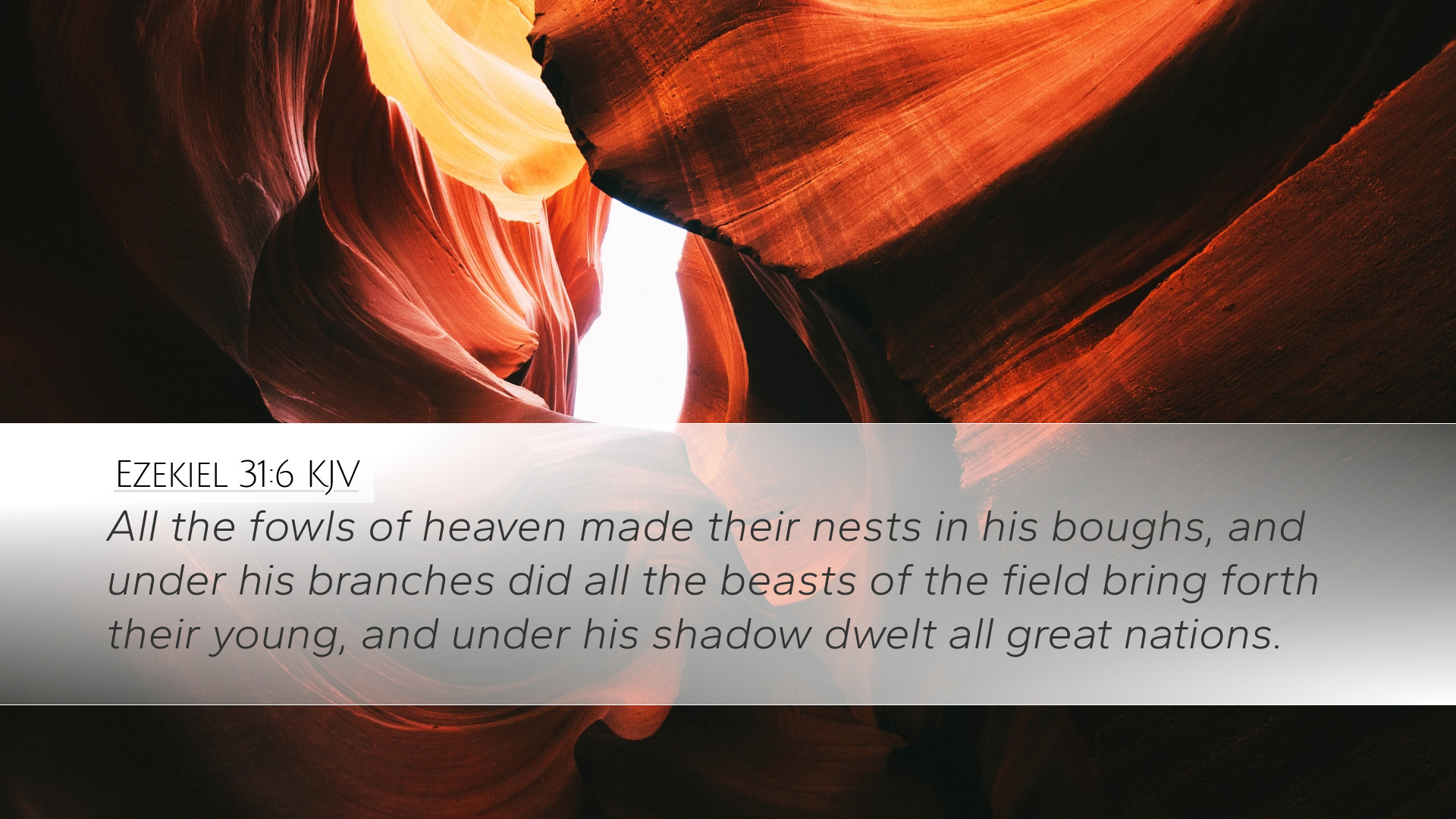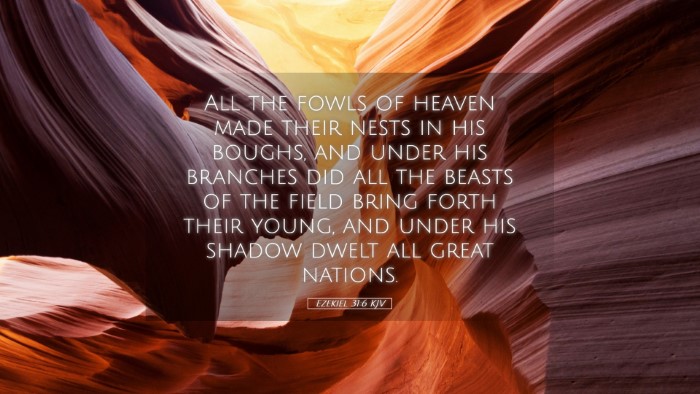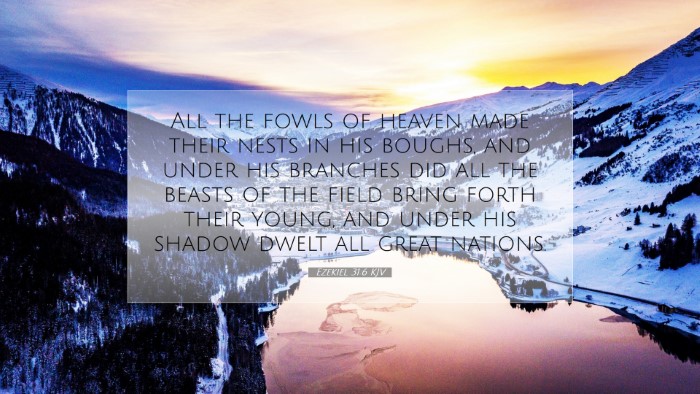Commentary on Ezekiel 31:6
Ezekiel 31:6 (KJV): "All the fowls of heaven made their nests in his boughs, and under his branches did all the beasts of the field bring forth their young, and under his shadow dwelt all great nations."
Introduction
The imagery in Ezekiel 31:6 serves as a powerful metaphor within the prophetic literature of Ezekiel. This verse illustrates the grandeur of a great tree, which represents a mighty empire. The interpretations by prominent commentators such as Matthew Henry, Adam Clarke, and Albert Barnes provide significant insights into its meaning and implications for the nations of the world and the consequences of pride.
The Symbolism of the Tree
Henry notes that the tree symbolizes the Assyrian empire, likening it to the "cedar in Lebanon." Its vastness and strength signify how great kingdoms can establish a sheltering presence among nations. This tree's branches extending wide suggest an expansive influence, indicating that it became a refuge for various creatures.
- Spiritual Refuge: Just as birds make nests in this tree, nations and peoples find refuge under this empire's rule.
- Symbol of Power: The mention of beasts brings forth the idea of power and sustenance experienced under a dominant nation’s rule.
The Role of Nations
Clarke emphasizes the diverse relationships between nations and the Assyrian empire represented in this imagery. Nations would bring forth their young under the shadow of such a powerful tree, implying a reliance on and benefit from the strength of a greater empire.
- Interdependence: The beasts bringing forth their young under this tree represent the political and social structure of ancient empires, where weaker nations depended on the protection of stronger ones.
- Moral Implication: Yet, there lies an inherent tension; nations that prosper under this shadow may also face the threats of pride and eventual downfall if they forget their dependence on God.
Lessons on Pride and Fall
Barnes elucidates that the flourishing of this great tree is a warning against pride. The prosperity of the empire and its ability to provide for other nations leads to an increase in arrogance:
- Danger of Forgetting God: The splendor and power overwhelming the nations can lead to a spiritual blindness toward divine sovereignty.
- Call to Humility: The lesson for Israel and other nations is to remain humble and recognize their dependency on God rather than the might of empires.
The Universal Application
Henry draws a broader application, suggesting that this metaphor transcends its immediate context and speaks to the future of nations and kingdoms. The text invites reflection on how empires rise and fall in human history, urging readers to consider God’s providence governing these dynamics.
- Divine Sovereignty: Ultimately, the narrative serves as a testament to God’s control over history and the fates of worldly powers.
- Hope for Restoration: The dominion of God promises that despite the fall of great trees (empires), there is hope for renewal and restoration in God's plan.
Conclusion
Ezekiel 31:6 invites a profound contemplation of the relationship between earthly powers and Divine authority. The cedar, with its mighty stature, represents both the potential for great influence and the peril of pride. For pastors, theologians, and students alike, this verse encourages a careful examination of our reliance on earthly structures and a reminder to seek alignment with God’s will.


